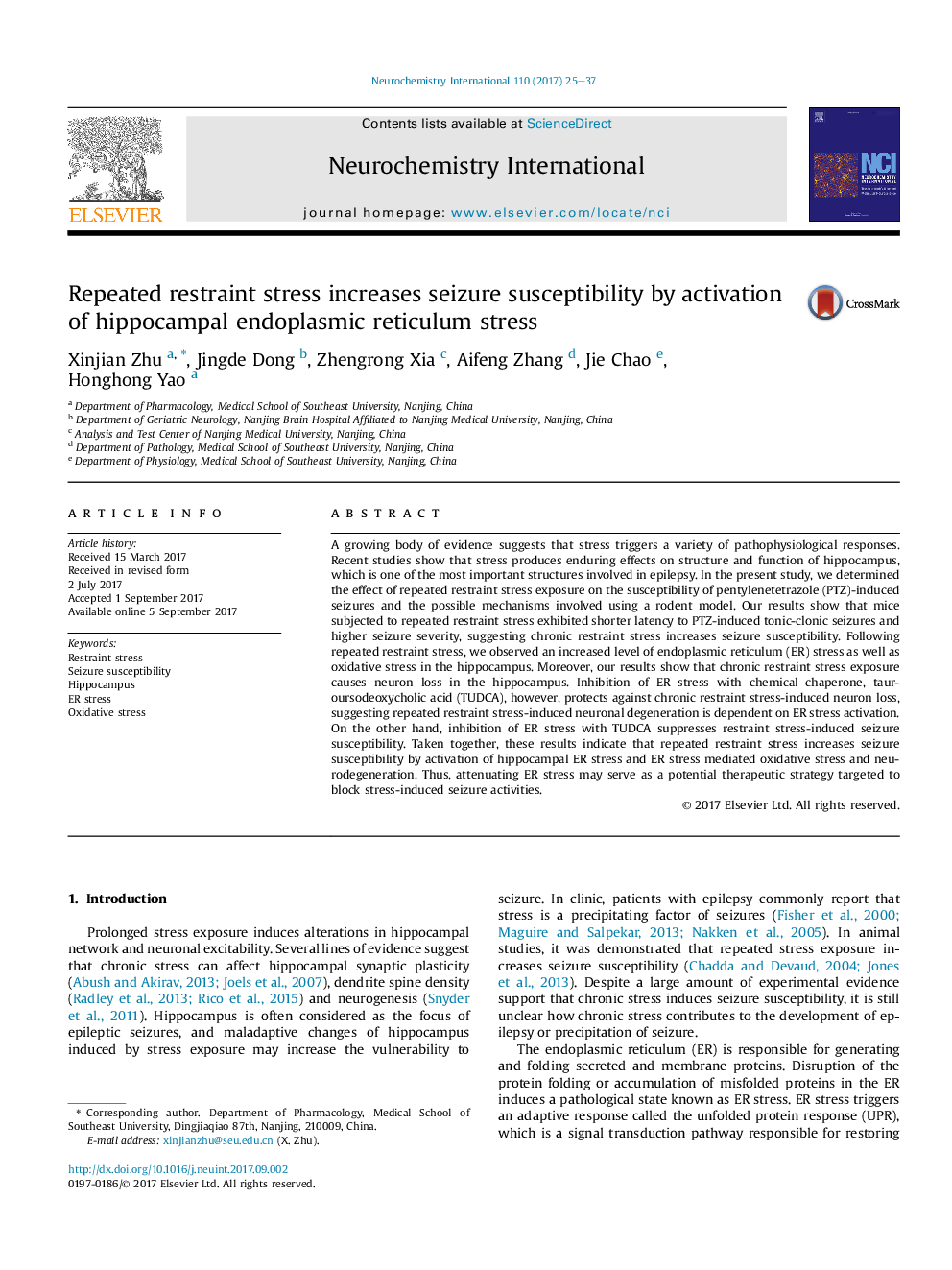| Article ID | Journal | Published Year | Pages | File Type |
|---|---|---|---|---|
| 5534640 | Neurochemistry International | 2017 | 13 Pages |
â¢Repeated restraint stress increases seizure susceptibility.â¢Repeated restraint stress induces hippocampal ER stress.â¢Inhibition of ER stress by TUDCA reduced repeated restraint stress-induced hippocampal oxidative stress and neuron loss.â¢Inhibition of ER stress by TUDCA decreases repeated restraint stressed-induced seizure susceptibility.
A growing body of evidence suggests that stress triggers a variety of pathophysiological responses. Recent studies show that stress produces enduring effects on structure and function of hippocampus, which is one of the most important structures involved in epilepsy. In the present study, we determined the effect of repeated restraint stress exposure on the susceptibility of pentylenetetrazole (PTZ)-induced seizures and the possible mechanisms involved using a rodent model. Our results show that mice subjected to repeated restraint stress exhibited shorter latency to PTZ-induced tonic-clonic seizures and higher seizure severity, suggesting chronic restraint stress increases seizure susceptibility. Following repeated restraint stress, we observed an increased level of endoplasmic reticulum (ER) stress as well as oxidative stress in the hippocampus. Moreover, our results show that chronic restraint stress exposure causes neuron loss in the hippocampus. Inhibition of ER stress with chemical chaperone, tauroursodeoxycholic acid (TUDCA), however, protects against chronic restraint stress-induced neuron loss, suggesting repeated restraint stress-induced neuronal degeneration is dependent on ER stress activation. On the other hand, inhibition of ER stress with TUDCA suppresses restraint stress-induced seizure susceptibility. Taken together, these results indicate that repeated restraint stress increases seizure susceptibility by activation of hippocampal ER stress and ER stress mediated oxidative stress and neurodegeneration. Thus, attenuating ER stress may serve as a potential therapeutic strategy targeted to block stress-induced seizure activities.
